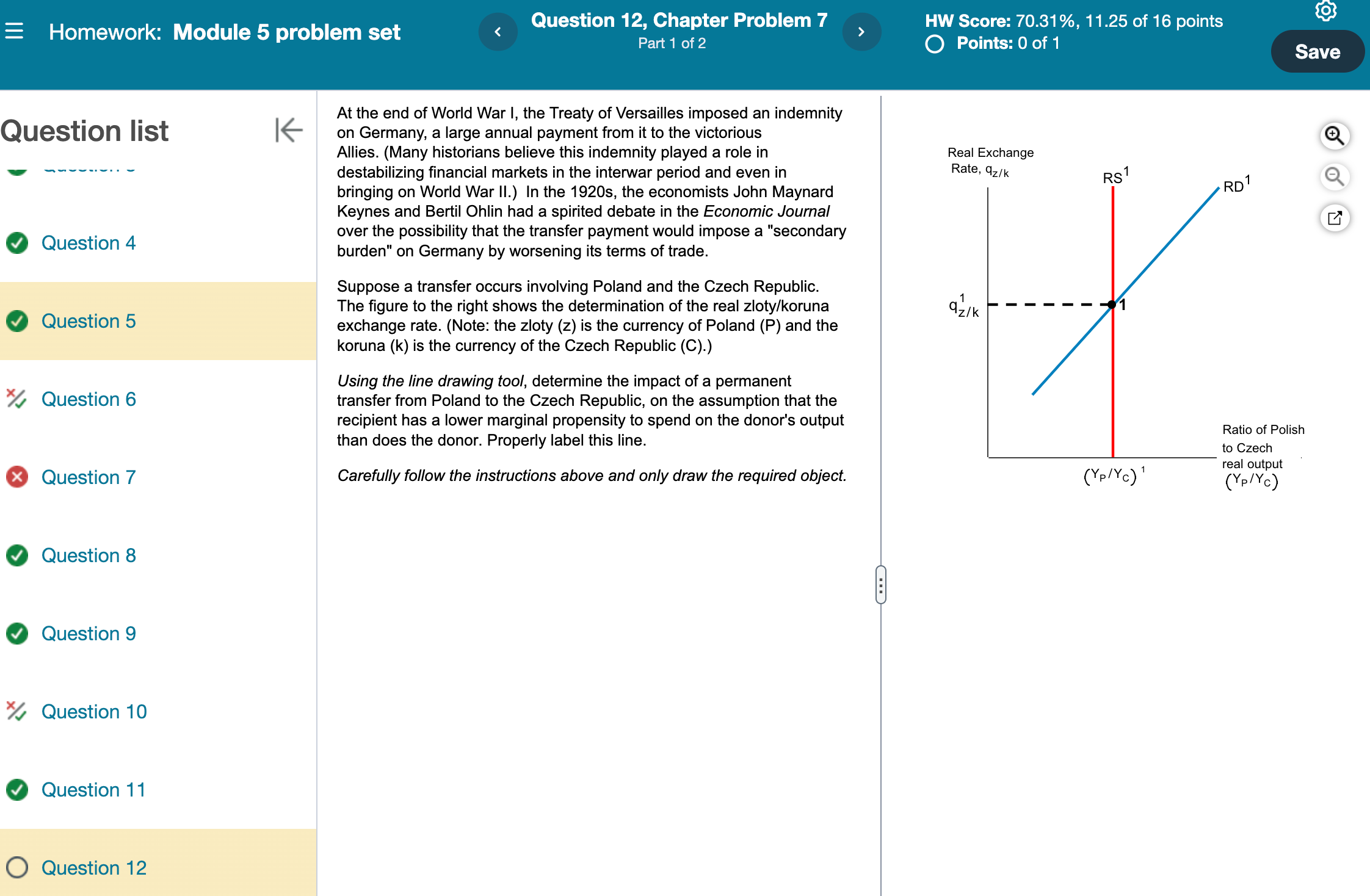Answered step by step
Verified Expert Solution
Question
1 Approved Answer
At the end of World War I, the Treaty of Versailles imposed an indemnity on Germany, a large annual payment from it to the victorious
At the end of World War I, the Treaty of Versailles imposed an indemnity on Germany, a large annual payment from it to the victorious Allies. Many historians believe this indemnity played a role in destabilizing financial markets in the interwar period and even in bringing on World War II In the s the economists John Maynard Keynes and Bertil Ohlin had a spirited debate in the Economic Journal over the possibility that the transfer payment would impose a "secondary burden" on Germany by worsening its terms of trade.
Suppose a transfer occurs involving Poland and the Czech Republic. The figure to the right shows the determination of the real zlotykoruna exchange rate. Note: the zloty is the currency of Poland and the koruna k is the currency of the Czech Republic C
Using the line drawing tool, determine the impact of a permanent transfer from Poland to the Czech Republic, on the assumption that the recipient has a lower marginal propensity to spend on the donor's output than does the donor. Properly label this line.
Carefully follow the instructions above and only draw the required object. Please include a graph

Step by Step Solution
There are 3 Steps involved in it
Step: 1

Get Instant Access to Expert-Tailored Solutions
See step-by-step solutions with expert insights and AI powered tools for academic success
Step: 2

Step: 3

Ace Your Homework with AI
Get the answers you need in no time with our AI-driven, step-by-step assistance
Get Started


